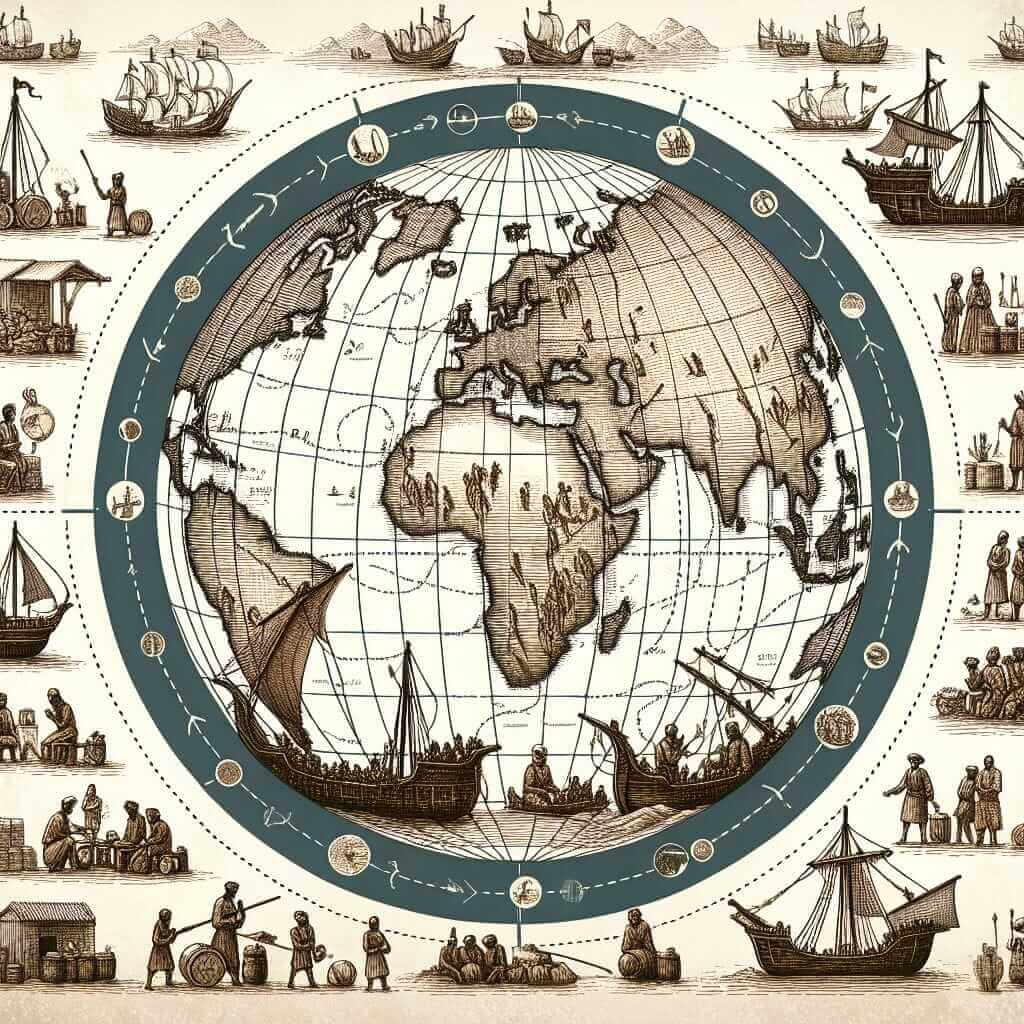The IELTS Reading component is a challenge that requires precise comprehension skills, critical thinking, and time management. Among various topics, the “Historical significance of ancient maritime trade” is a well-loved theme that appears in multiple IELTS practice tests and occasionally in real exams. This indicates the topic’s popularity and possibility of recurrence in future exams. In this article, we will delve into the theme, create a mock IELTS Reading test, and provide detailed answers and strategies to improve your IELTS Reading skills.
Mock IELTS Reading Test
Passage: The Historical Significance of Ancient Maritime Trade
Easy Text
Ancient maritime trade played a crucial role in shaping the world as we know it today. Primarily driven by the quest for spices, silks, and other valuable commodities, these maritime routes connected distant civilizations and facilitated not only the exchange of goods but also ideas, cultures, and technologies.
The Phoenicians were one of the earliest known maritime traders, famed for their vast networks across the Mediterranean Sea. They established colonies and trading posts, spreading their alphabet and advanced shipbuilding techniques. Similarly, the maritime prowess of the Greeks and Romans was evident in their extensive trade networks, which helped in consolidating their empires and improving their economies.
The Indian Ocean trade network was another critical maritime route that connected East Africa, the Middle East, South Asia, and Southeast Asia. This network was significant for the spread of religions such as Buddhism and Islam, alongside being a source of great wealth. The Chinese, particularly during the Ming Dynasty, sent out large fleets under the explorer Zheng He, demonstrating their maritime dominance and fostering diplomatic relations.
The Age of Exploration, marked by figures such as Columbus, Vasco da Gama, and Magellan, was the apogee of maritime trade. This era dramatically changed the geopolitical landscape, fostering European colonialism and opening new trade routes across the Atlantic and Pacific Oceans. The movement of goods such as silver, gold, and spices during this time established the foundations of global trade.
Thus, ancient maritime trade not only served as a connecting thread between various parts of the world but also laid the groundwork for the globalization we witness today.
Questions
-
Multiple Choice
According to the text, what was one of the Phoenicians’ notable contributions to other civilizations?
a) Their religious practices
b) Their alphabet and shipbuilding techniques
c) Their governance structures
d) Their agricultural methods -
True/False/Not Given
The Indian Ocean trade network was solely focused on trading spices. -
Matching Information
Match the following civilizations with their contributions to maritime trade:- Greeks and Romans
- Phoenicians
- Chinese (Ming Dynasty)
a) Spread of their alphabet
b) Expansion of empire and economy
c) Demonstrated maritime dominance -
Sentence Completion
Complete the following sentence with NO MORE THAN THREE WORDS.
The Age of Exploration facilitated European ____ and opened new trade routes.
Answers and Explanations
-
Multiple Choice
- Answer: b) Their alphabet and shipbuilding techniques
- Explanation: The passage specifically mentions that the Phoenicians spread their alphabet and advanced shipbuilding techniques.
-
True/False/Not Given
- Answer: False
- Explanation: The passage states the Indian Ocean trade network was involved in the spread of religions and was a source of great wealth, indicating it wasn’t solely focused on spices.
-
Matching Information
- Greeks and Romans: b) Expansion of empire and economy
- Phoenicians: a) Spread of their alphabet
- Chinese (Ming Dynasty): c) Demonstrated maritime dominance
-
Sentence Completion
- Answer: (European) colonialism
- Explanation: The sentence mentions the Age of Exploration changed the geopolitical landscape and fostered European colonialism.
Common Mistakes
- Misreading details about contributions: Many candidates misinterpret the specific achievements of different civilizations.
- Misjudging the scope of networks like the Indian Ocean trade, underestimating their multifaceted impacts.
Vocabulary
-
Prowess (noun) /prɑʊˈes/: great skill at doing something
- Example: The maritime prowess of the Greeks and Romans was significant.
-
Facilitate (verb) /fəˈsɪlɪˌteɪt/: to make an action or process easier
- Example: These maritime routes facilitated the exchange of goods and ideas.
-
Apogee (noun) /ˈæpəˌdʒi/: the highest point in the development of something
- Example: The Age of Exploration marked the apogee of maritime trade.
Grammar Focus
-
Relative Clauses: Used to provide additional information about a noun without starting a new sentence.
- Example: “The Phoenicians, who were one of the earliest known maritime traders, spread their alphabet.”
-
Passive Voice: Often used in formal writing and academic contexts to emphasize the action rather than who performs it.
- Example: “Ancient maritime trade was driven by the quest for valuable commodities.”
Recommendations
To excel in the IELTS Reading test, practice regularly with diverse texts. Focus on improving your speed, comprehension, and ability to identify key information swiftly. Don’t shy away from complex topics—embrace them as they will enhance your vocabulary and analytical skills.
Check out our related article on the historical analysis of ancient trade routes to broaden your understanding further.

Good luck with your IELTS preparation!